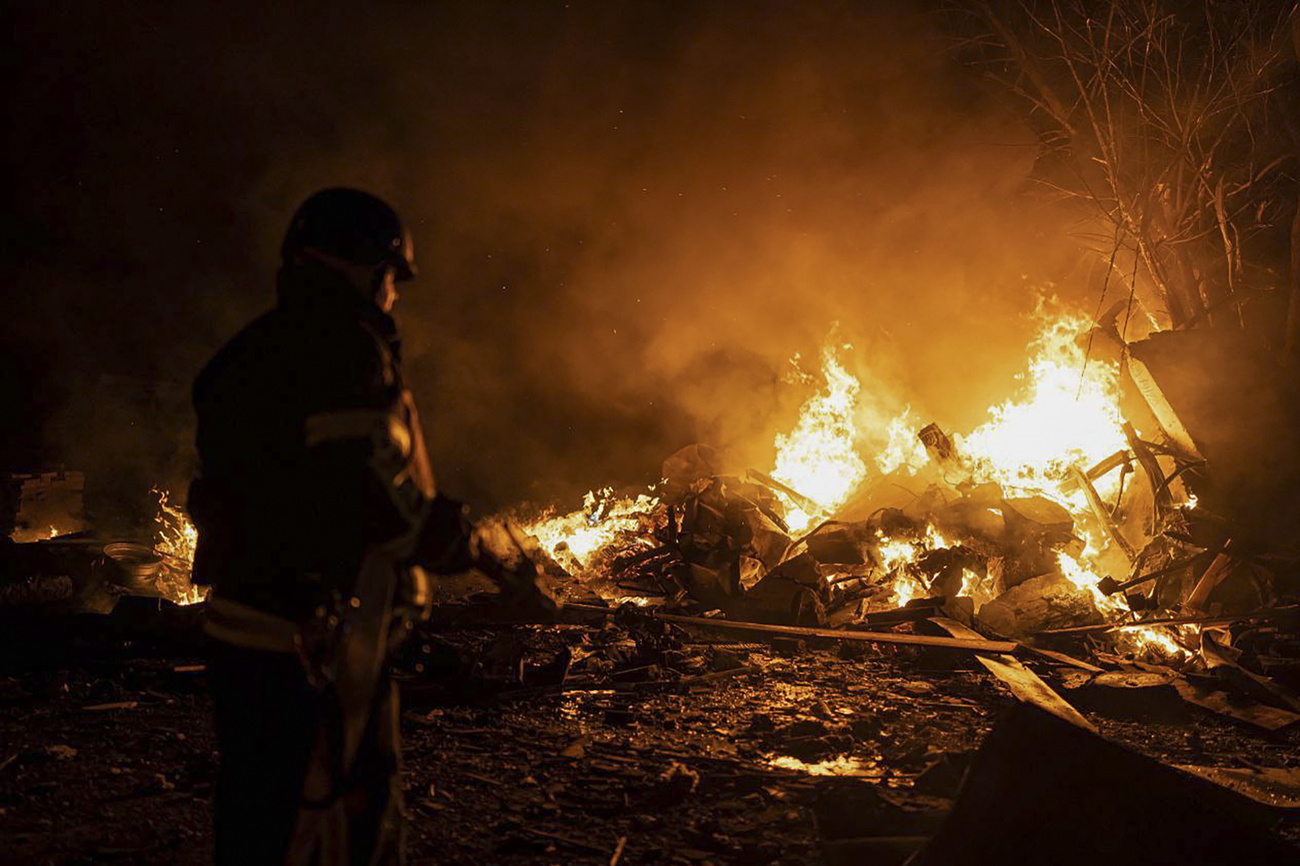
Switzerland supports Ukraine war damage register

Switzerland has said it plans to sign up to an official international register of Russian war damage due to the invasion of Ukraine.
On Tuesday and Wednesday, Swiss President Alain Berset was in Reykjavik, Iceland, for Council of Europe discussions about a register to form the foundation for discussions about Russia paying for damages inflicted.
The document – the “Register of Damage Caused by the Aggression of the Russian Federation Against Ukraine” – was signed off on by 40 countries on Wednesday morning, with Switzerland being one of three announcing its “intention to join”, a Council of Europe press releaseExternal link said.
+ Could Switzerland seize Russia’s foreign reserves?
Estimates of the cost of rebuilding Ukraine vary between $350 billion to $1 trillion (CHF900 billion).
The majority of United Nations countries voted in favour of the principle that Russia should pay compensation at its General Assembly last year.
Russia has denounced the reparations demands as an attempt to steal its frozen state funds. Switzerland says it has “immobilized” CHF7.4 billion of Russian central bank assets in addition to freezing CHF7.5 billion belonging to oligarchs and companies.
However, the issue of permanently seizing funds to pay for the reconstruction of Ukraine is fraught with legal complications.
“We are all aware that the damage caused by the aggressor should be repaired by the aggressor,” Swiss Foreign Minister Ignazio Cassis said in January. “But we have to act within the rules of law, otherwise we lose credibility when we condemn others for violations of the law.”
The Swiss government, in common with other countries, has so far refused to commit itself to re-directing frozen Russian assets to pay for Ukraine’s reconstruction.

In compliance with the JTI standards
More: SWI swissinfo.ch certified by the Journalism Trust Initiative































You can find an overview of ongoing debates with our journalists here . Please join us!
If you want to start a conversation about a topic raised in this article or want to report factual errors, email us at english@swissinfo.ch.